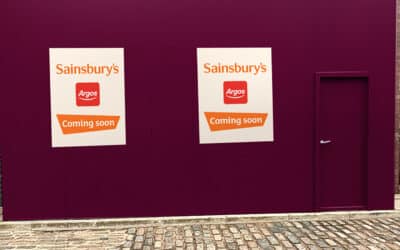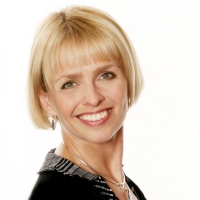 Born in India but raised in the North East, Lewis was tutored in Bristol and Preston before she laid down her family and working roots in Manchester, from where she now runs a successful independent production company making programmes for broadcasters around the world. She credits her father’s independence and adventurous character with imbuing her with a particularly keen sense of confidence and drive.
Born in India but raised in the North East, Lewis was tutored in Bristol and Preston before she laid down her family and working roots in Manchester, from where she now runs a successful independent production company making programmes for broadcasters around the world. She credits her father’s independence and adventurous character with imbuing her with a particularly keen sense of confidence and drive.
(This is the fourth in the ‘What I’ve Learnt’ series. The others have been Neil McKay/Lakestar, Nicky Unsworth/BJL and Rob Morrice/Stein IAS).
Cat Lewis is 48. She’s been made redundant twice but these days owns 100% of the £2.2m turnover Bafta winning indie Nine Lives. Her company employs 26 staff and she sits on various industry boards including Pact and she established the Indie Club network in Manchester.
Her father, Bob Pettigrew, was a mountaineer who ran trekking groups in the Himalayas where Lewis was born before, aged three, the family returned to the UK and Stockton-on-Tees.
Pettigrew, now aged 82 still treks the lower Himalayas.
“My dad taught me the importance of being decisive” said Lewis “as in the mountains you don’t have time to hang about before making a decision. I have no doubt I’ve inherited his Himalayan stamina, as well as his fearlessness, which in business is really important.
“He also taught me an unusual attribute I feel for the sector I’m in, which is the ability to lead from the back of the group. It’s an established rule for mountain leaders .You stay at the back, where you can keep your eye on everyone and move your group forward together at the pace of the slowest.
“Leading from the back rather than striving out in front means no one gets left behind and you achieve your goal together.
“My mum also taught me so much, but probably believing in myself, ensuring my work has integrity and always looking for the best in people were the three key lessons I learnt from her. As a result of my mum teaching me about the spiritual side of life, I have nine godchildren as well as my two sons Tom (23) and Joe (19).”
Theatre and film in the blood
However, theatre and film was also in the Pettigrew blood as her great grandfather, Guy Pettigrew, was a music hall performer who began making films during the era of silent movies in 1919 and later ran a cinema in Liverpool.
At the age of 15, Lewis decided a life in the media and broadcasting beckoned and she secured herself a role as the co-presenter of a children’s radio programme on Radio Tees which led to her becoming the co-presenter in 1981 on a Tyne Tees programme, Sunday Sundae, claimed to be British TV’s first ever Sunday morning children’s magazine series.
The programme ran for one series but Lewis had by then decided to go to University to complete her education and she chose English and Drama at Bristol.
While at Bristol she was approached by Malcolm Gerrie, her Sunday Sundae producer at Tyne Tees, who was then working on the launch of the legendary ‘The Tube’ asking her to audition for the role which subsequently went to Paula Geldof. Lewis said she reflected long and hard but ultimately decided to decline an audition because she was “loving her degree” and “decided I wanted to become a producer rather than be a presenter, because I knew I would find it more creatively satisfying (which it is).
“Although I’m sure that Paula would always have got the job anyway, looking back I’m really pleased I didn’t become one of those young women presenters who then gets abandoned when they reach their forties and has to stop working in TV.”
After Bristol she went to UCLan where she met her husband Mike (who went on to be a senior producer and editor with ITV and is now Nine Lives head of current affairs).
After UCLan she got a job at the BBC in Manchester, initially as a production trainee and then as a researcher before she and Mike decided to start their family. Determining that she wished to spend more time with her young family than immersing herself back in full time work, she moved across town having reached an agreement with Granada which led her to her taking up a role as an assistant producer in what was Granada’s first ever job share.
The arrangement clearly suited both parties as not long after, aged just 26, she was promoted to series producer.
She then went back to the BBC, this time accepting a job as an on-screen reporter for North West Tonight, partly motivated she says because it meant she could be home at the end of each day, whereas as a producer/director she regularly found herself anywhere in the UK and occasionally abroad. Mike Lewis at the time was a producer/director for World in Action and was often filming away from home and Lewis says they decided that one of them “had to be there in the evening for our sons.
“I do think it’s important for working parents to ‘box clever’ in this way with their careers. Long term it won’t hold them back if they have talent and determination, but short term it means you are there when your children need you during their younger years, which you’ll never get a second chance to put right.”
Redundancy not in the career plans
With the children’s early days behind them, Lewis returned to Granada in 1998 as a producer/director, however, her time back at Granada, although successful in film-making terms, also coincided with major change at ITV as Granada effectively became subsumed within ITV and in 2001 a wholly unexpected episode occurred in her life when she was made redundant.
To someone accustomed to success and generally getting things her own way, the changed circumstances were something of a shock. Her plans for her broadcasting career hadn’t included working for herself but “sometimes when change is imposed, it forces you to take a risk, which is hard to justify otherwise, when you have a family to support.”
Following discussions with the broadcaster Rob McLoughlin, who, along with several media and financial folk including Noel Edmonds, had established a hybrid broadcasting/PR company called Unique, she set up a brand-new factuals operation for Unique.
Both Unique and Lewis did well out of the new division: within five years the factuals arm had grown to £1.8m in turnover. Lewis knew about making good TV but she was, by her own admission, commercially naïve.
There was no equity on offer and no performance-related pay although an option scheme was offered later which she subsequently discovered didn’t amount to much.
“But I did learn an awful lot.
“I had always focussed on making great TV for the BBC and ITV but while at Unique, I learnt how to make money by making great TV. Specifically I learnt that you can actually make more money by selling a one-off programme internationally than you can making a moderately successful series for domestic consumption.
“It also helped that my direct boss was in London and at that distance, I was allowed more space than perhaps would normally be allowed and enabled me to act more on my own.
“The five years spent there essentially taught me that business wasn’t black magic and I’d learnt what I needed to know in order to set up my own company.”
In September 2006, she started the Indie Club and the act of drawing together so many indies for a common cause had an unintended effect in that it also made her consider her own position within Unique. And from talking and mixing more with other indies and in particular their owners she began to realise that “Unique was top heavy in terms of management and as a result, their overheads were too high.”
Unexpected Christmas tales
So when over Christmas 2006, she learnt that the parent company Unique Communications Group was experiencing financial difficulties as it had grown so fast and into a number of new disparate areas, she began considering her options, a decision which was ultimately made for her when in January 2007, she was made redundant for a second time.
As part of her redundancy, she negotiated a fee with Unique which saw her paying a fee in return for being allowed to take a newly-won series commission from the Crimes and Investigation Network (C&IN) with her.
Lacking the confidence at that time to do it entirely on her own, she teamed up with Dave Sandford, a former BBC exec and they formed a limited company, jointly owned.
C&IN was clearly pleased and indeed Lewis says with some pride that Nine Lives is currently working on series five for them.
However, although Lewis now found herself in her new and true element, the life and business of running an indie didn’t hold the same appeal for Sandford and when he was offered a job with True North in Leeds, he took it, selling his shares back to Lewis.
It was all harmonious she stresses and although Lewis felt anxious once he’d gone, she says the BBC connections he left Nine Lives with were invaluable and instilled a deeper conviction within her that the young company’s long-term prospects were positive.
The early commission “Small Team Big World” for BBC Three was a direct consequence of one of Sandford’s introductions and six years later the BBC remains Nine Lives main source of revenue.
In addition to BBC Three, there is also work with CBBC and BBC One along with the long-term client C&IN and others including TLC in America and Channels 4 and 5.
And in 2012, Nine Lives picked up a BAFTA for ‘Best Factual Children’s Programme, Me, My Dad & His Kidney’ for CBBC.
Nine Lives now turns over £2.2m with modest profits as Lewis says she prefers to invest profit back into the company citing a major recent investment into the office’s infrastructure in its base, just off Deansgate in central Manchester, where Flix facilities is a neighbour and close commercial partner. She adds that her experience with Unique taught her to keep her overheads as low as possible.
Excluding All3Media-owned Lime Pictures in Liverpool, Nine Lives is arguably the largest indie in the North after Red Productions in Manchester and True Northin Leeds.
Lewis attributes much of this success down to her belief that “production companies can only expand if they are run by exec producers, who can oversee a number of programmes at the same time.
“When I set up Nine Lives, I aimed to get programmes commissioned which I knew would sell internationally. This was always my business plan and is the key to my business success. Many producers try to run a TV business on a 10% profit margin (the standard production fee in UK broadcasting) but it’s impossible to run any business on a 10% profit margin. Once American channels play your programmes and they rate – those channels are also happy to commission directly from you.
Do it first for someone else
“At Unique, I was given the freedom to do what I now do but I was doing it with someone else’s money and I do think that’s a good tip for people wanting to start their own business. Do it first for someone else and then you know you can do it for yourself.”
In terms of staff incentivisation, Lewis says she tends to remunerate her “most expensive staff by ensuring they need to earn their keep by bringing in new business” and bonuses are also paid to staff when they come up with programme ideas which are commissioned. She also pays bonuses to freelance programme makers, which encourages them to send their ideas to Nine Lives, ensuring the company has a stream of “strong ideas” to send to commissioners.
Lewis is adamant this process suits her staff well…and their CVs.
“Two of my 26 year old assistant producers – Claire Judge and Kayleigh Smith – have each had three of their programme ideas commissioned by different networks.”
Although Nine Lives is prospering and Lewis is used to and clearly comfortable with running things her own way, she is aware that such an ‘unanswerable to anyone’ route can be paved with pitfalls along the way. So she has pulled together an advisory board which holds no executive or financial power but does challenge her. This board, which comprises her head of finance Anita Woolley, Chris Briscoe and Felicity Goodey, meets every eight weeks and she says she finds the meetings invaluable.
Outside of family and work, she is an avid exerciser and enjoys running and climbing. She also enjoys horse riding and says that her next ambition is to own a horse.
But all in good time.
“You can have it all, but not all at once.”












